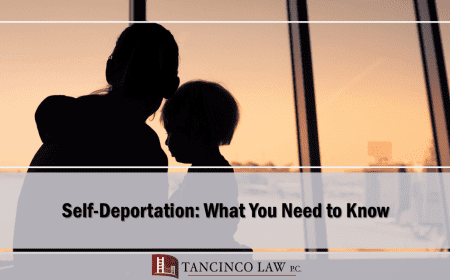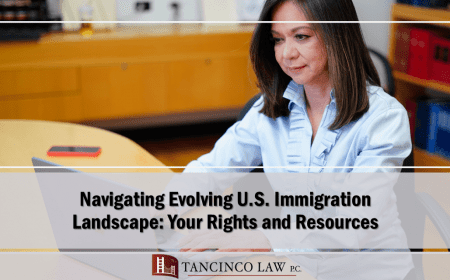FREQUENTLY ASKED QUESTIONS
Filipino World War II Veterans Parole Policy (FWVP)
Prepared by: Atty. Lourdes Santos Tancinco
Updated: November 2017
1. What is the Filipino World War II Veterans Parole (FWVP) program?
The Filipino World War II Veterans Parole (FWVP)is a program announced for implementation by the U.S. Citizenship and Immigration Services (USCIS) on May 9, 2016 that will allow certain beneficiaries of approved family based immigrant visa petitions an opportunity to request a discretionary grant of parole on a case by case basis so that they may come to the United States as they wait for their immigrant visa numbers to become available. As of March 2017, USCIS received 361 FWVP applications, 276 still pending, 33 denied and approved only 52 applications.
2. What is the meaning of ‘parole’?
Parole is a discretionary measure that will allow an individual to enter the United States; it is not a visa neither is it considered an admission.
3. What is the purpose of the FWVP or the veterans parole?
To enable the son or daughter of the veteran to come to the United States and take care of the elderly veteran. While on parole, he or she can stay in the United States until the priority date of the petition becomes current.
4. Who can apply for the veterans’ parole?
Applicants may be the U.S. citizen veterans or surviving spouses on behalf of their sons and daughters and their derivatives who are beneficiaries of approved I-130 Petition for Relative filed by the Filipino veteran or spouse. Once the parole is approved, the applicant son or daughter will be interviewed by USCIS at the U.S. Embassy for consideration (grant or denial) of the parole.
5. Who are the veterans referred to in this policy?
These are the Filipino World War II veterans who have proven their status as such when they naturalized to become U.S. citizens under the IMMACT90. They must have filed I-130 petitions for their children under any of the family preference categories.
6. What type of cases are covered by this FWVP?
Those with approved petitions filed by Filipino veteran, still alive residing in the United States
Those with approved petitions filed by Filipino veterans, deceased, but resided in the United States at the time of death
Those with approved petitions filed by the widows of Filipino veterans, still alive residing in the United States
Those with approved petitions filed by the widow of Filipino veterans, now deceased but was in the United States at the time of death
Those with approved petitions filed by Filipino veterans or widows, and both the veteran and widow are now deceased. An additional requirement of a “visa reinstatement” based on humanitarian concern is required in this case.
7. Who are the beneficiaries of the veterans’ parole policy?
Sons and daughters of Filipino World War II veterans and their derivative spouses and sons and daughters who are below 21 years old. This means that parole policy does not only extend to the children of the veterans but also to their grandchildren.
8. What type of petition must have been previously filed to qualify for the veteran’s parole?
There must be an approved I-130 (Petition for Immediate Relative) filed by the veteran or the veteran’s widow and which petition must be approved before the request for parole. The approved petition must have a priority date that is not yet current.
9. What is required of the derivative spouses and their children?
Other than proving that there was a prior I-130 petition that was approved, there must be proof that there is was an existing relationship before May 9, 2016, i.e. must be married and child must be born before May 9 to qualify.
10. How can the veterans or widow prove military service during World War II?
They must have been previously recognized by the U.S. Department of the Defense and based on the IMMACT90 as amended in 1998.
11. If the name of the veteran is not on the list of the National Personnel Record Center at St. Louis Missouri, can secondary evidence be submitted?
USCIS will consider other proof of military record if after responding to the RFE the applicant submits secondary proof according to the IMMACT90.
12. May the stepchildren of veterans or the children of the widows of the veterans prior to or after the marriage to the veteran qualify for the parole?
Yes, only if it meets the definition of a stepchild under immigration law. This means that the son or daughter of the widow who is not fathered by the veteran may qualify if the marriage of the veteran and the widow occurred when the stepchild was below 18 years old.
13. When can the veterans, widows apply for parole on behalf of their children?
USCIS started accepting FWVP applications on June 8, 2016. USCIS currently still accepts FWVP until further notice.
14. Will sons and daughters presently in the United States in unlawful status apply for parole?
USCIS clearly stated that the parole program applies to those who are outside the United States.. However, certain relatives in the United States may be able to benefit from the FWVP Program. If USCIS conditionally approves the application for a parole document, the beneficiary will need to leave the United States and appear abroad at a USCIS office or U.S. embassy or consulate to be interviewed. The 3-10 year bar will apply depending on how long the family members have been in unlawful status in the United States.
Sons and daughter of Filipino veterans present in the United States must explore other legal options outside of the parole program. Those whose parents passed away may want to consider humanitarian reinstatement.
15. When can the self-petitioner, whose veteran parent and mother are now both deceased, apply?
The self petitioner may apply after the I-130 is reinstated by the USCIS.
16. How does one apply to the FWVP Program ?
To apply, petitioners must submit:
• A parole application (Form I-131, Application for Travel Document) along with the required fee (or fee waiver request) for each relative to be considered for parole; and
• At least one Form I-134, Affidavit of Support, for each relative to be considered for parole.
NOTE: Petitioners must submit parole applications for all eligible relatives associated with the same underlying Form I-130 at the same time. This means petitioners will need to file any applications for derivative beneficiaries at the same time as the application for the principal beneficiary. If a petitioner does not apply for the principal beneficiary, USCIS will not consider the associated derivative beneficiaries under the FWVP Program.




